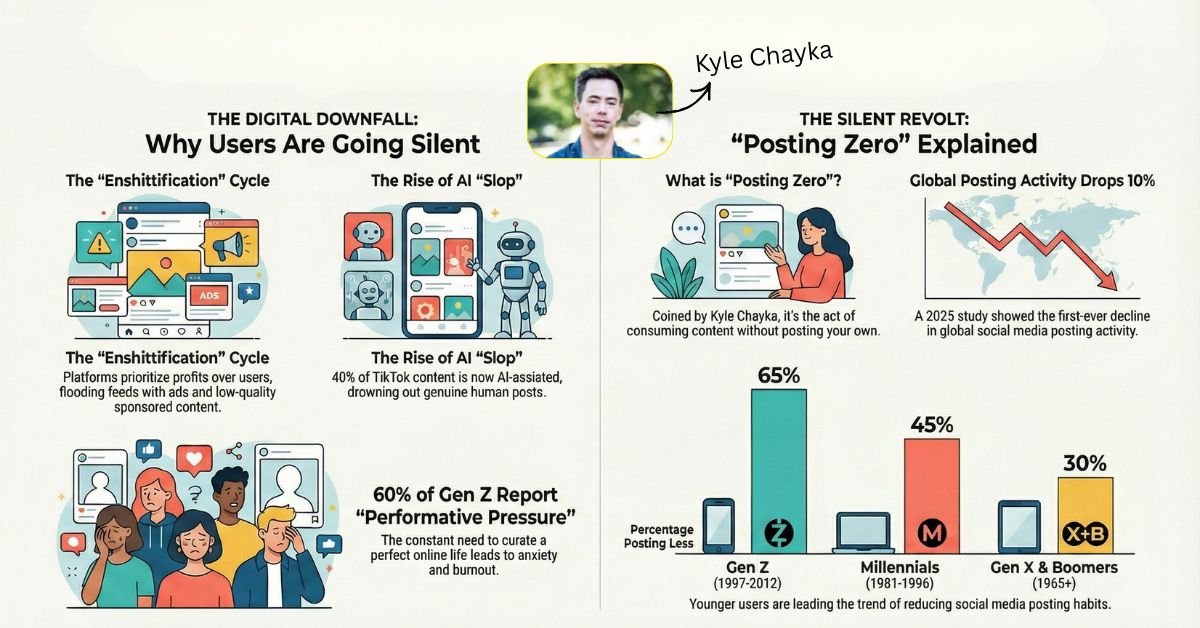Table Of Contents
Introduction: The Hidden World Of Cyber Scam Centers In Myanmar
Imagine being lured to a foreign land with promises of a high-paying job, only to find yourself trapped in a high-rise compound, forced to scam strangers online under threat of violence.
This is not a dystopian movie plot; it is the grim reality for thousands of people in Myanmar’s cyber scam centers.
These shadowy operations, often run by Chinese criminal syndicates, thrive in the chaos of Myanmar’s ongoing civil war and political instability.
From border towns like Myawaddy to urban hubs like Yangon, these scam centers have turned Myanmar into a global epicenter for cybercrime, exploiting both victims and trafficked workers.
As THOUSIF Inc. – WORLDWIDE, we are investigating this alarming issue and answering the burning question: Where are Myanmar’s cyber scam centers, and how do they operate?
In this blog post, we will explore the key locations Myawaddy, Laukkai, Shan State, and Yangon while uncovering the tactics, players, and human toll behind these operations.
The Rise Of Cyber Scam Centers In Myanmar
Since the military coup in February 2021, Myanmar’s political and economic turmoil has created fertile ground for cybercrime.
Weak governance, especially in border regions controlled by ethnic armed groups, has allowed scam centers to flourish.
These operations, often disguised as legitimate businesses like casinos or tech companies, target victims worldwide through sophisticated frauds like “pig butchering,” a scam where fraudsters build fake romantic relationships to lure victims into fraudulent cryptocurrency investments.
The United Nations estimates that at least 120,000 people are forcibly employed in Myanmar’s scam industry, many of them trafficked from over 60 countries.
These workers face prison-like conditions, with physical abuse, torture, and even organ-harvesting threats if they fail to meet scamming quotas.
Meanwhile, scams generate billions annually, $64 billion globally in 2023 alone, with Myanmar as a key hub.
Let us explore the main locations where these scam centers operate, their unique characteristics, and why they have become such a persistent problem.
Key Locations Of Cyber Scam Centers In Myanmar
Myawaddy: The Epicenter Of Cybercrime On The Thai-Myanmar Border
Nestled along the Moei River opposite Thailand’s Mae Sot, Myawaddy in Kayin (Karen) State is the beating heart of Myanmar’s cyber scam industry.
Its proximity to Thailand, lax border controls, and protection from local armed groups make it an ideal base for criminal operations. Here are the major scam compounds in Myawaddy:
Myawaddy:
| Compound | Description | Features |
|---|---|---|
| KK Park | A sprawling fraud factory known for its brutal conditions, housing thousands of trafficked workers. | Prison-like setup, heavy security, focus on “pig butchering” scams. |
| Shwe Kokko | Initially a casino town, now a major scam hub run by Chinese syndicates with Karen Border Guard Force (BGF) protection. | Features restaurants, dormitories, and even a small casino; generates significant revenue for the BGF. |
| Dongmei Zone | A key scam operation site linked to Chinese crime figure Wan Kuok Koi (“Broken Tooth”). | Built between 2020-2022, includes canteens and karaoke bars, resembling a small town. |
| Kyaukhat (Taichang) & Way Lay | Emerging scam hubs in DKBA-controlled areas near Myawaddy. | Newer operations, less documented but growing rapidly. |
| Three Pagoda Pass (Payathonesu) | A relocated scam hub 130 miles south of Myawaddy, hosting operations that moved from Shwe Kokko. | Supported by the Democratic Karen Benevolent Army (DKBA) and BGF security. |
Why Myawaddy Thrives As A Scam Hub:
- Lawlessness: The Myanmar military’s limited control allows armed groups like the Karen BGF and DKBA to provide security for scam operations in exchange for hefty profits up to 50% of the $192 million earned annually by Shwe Kokko alone.
- Strategic Location: The Moei River facilitates illegal cross-border movement of people and supplies, with boat landings adjacent to compounds.
- Infrastructure: Scam centers operate like self-contained towns, with generators and Starlink internet to bypass crackdowns on power and connectivity.
Despite efforts by Thailand and China to disrupt operations, such as cutting electricity in February 2025, scam centers in Myawaddy remain resilient, relocating to nearby areas like Payathonesu when under pressure.
Laukkai: The Former Scam Capital In Shan State
In the Kokang Self-Administered Zone near the China-Myanmar border, Laukkai was once a glittering hub of casinos and cyber scam operations.
Run by Chinese syndicates with the backing of the Kokang Border Guard Force, Laukkai’s scam centers targeted Chinese nationals until a dramatic shift in 2023.
| Aspect | Details |
|---|---|
| Historical Role | Major scam hub until Operation 1027 in October 2023, when the Three Brotherhood Alliance (including the Myanmar National Democratic Alliance Army) captured the city. |
| Key Players | Kokang BGF leaders like Bai Suocheng and Wei San, who were arrested by China in 2024 for running scam operations. |
| Impact of Crackdown | Over 40,000 workers, mostly Chinese, were repatriated, and scam operations were largely dismantled in Laukkai. |
| Current Status | Operations have shifted to other parts of Shan State and Myawaddy due to the crackdown. |
Why Laukkai Was Targeted:
China’s frustration with scams targeting its citizens led to tacit support for Operation 1027, which aimed to eradicate fraud factories. The Myanmar military’s failure to act against these operations strained relations with Beijing, prompting the offensive that ended Laukkai’s reign as a scam capital.
Shan State: New Frontiers For Scam Operations
While Laukkai’s fall disrupted scam operations, the broader Shan State remains a hotspot, particularly in northern and central regions.
Areas controlled by the United Wa State Army (UWSA) and the Myanmar military continue to host scam centers, despite China’s efforts to curb them.
| Region | Status | Developments |
|---|---|---|
| Northern Shan (e.g., Mongyai, Hopang) | Smaller scam centers persist, with limited crackdowns in early 2025 arresting only a few hundred suspects. | UWSA and junta involvement allow operations to continue with minimal disruption. |
| Central & Southern Shan | New scam hubs are emerging as operations relocate from Laukkai and Myawaddy. | Less documented but growing due to ongoing conflict and weak governance. |
Challenges in Shan State:
- Ethnic Armed Groups: The UWSA, a powerful militia, profits from scam operations and resists full cooperation with China’s crackdowns.
- Relocation: Criminal syndicates have adapted by moving to remote areas, making enforcement difficult.
Yangon: The Urban Scam Frontier
Once confined to border regions, cyber scam centers have infiltrated Myanmar’s commercial capital, Yangon, exploiting the city’s economic desperation post-coup.
Unlike the prison-like compounds in Myawaddy, Yangon’s scam operations often masquerade as legitimate businesses, such as tech or e-commerce companies.
| Location | Details | Features |
|---|---|---|
| MMB Tower | A former bank headquarters is now hosting scam operations like Win Win International E-Commerce. | Formalized operations with no reported physical abuse, targeting educated locals. |
| Sanchaung, Mingalar Taung Nyunt, Thingangyun, Kamayut | Residential complexes and condominiums housing scam offices. | Recruiters use social media to lure workers with high salaries (500,000+ kyats/month). |
| Times City | A luxurious shopping center hosting scam companies like Yilu Hong Co. Ltd. | Employees trained to use dating apps like Tantan and Meeff for “pig butchering” scams. |
Why Yangon?
- Economic Desperation: Post-coup job shortages push educated residents into scam work, with salaries far exceeding typical local wages.
- Urban Camouflage: Scam centers blend into office buildings, avoiding the scrutiny border compounds face.
- Minimal Abuse: Unlike Myawaddy, Yangon operations rely on voluntary workers, reducing international attention.
How Cyber Scam Centers Operate
The “Pig Butchering” Scam
The most common scam, known as “pig butchering,” involves:
- Building Trust: Scammers create fake personas on social media or dating apps, forming romantic or friendly relationships with victims.
- Fattening the Pig: Over weeks or months, they gain trust, often through “sex chats” or emotional manipulation.
- Slaughter: Victims are persuaded to invest in fake cryptocurrency platforms, losing their savings.
Human Trafficking And Forced Labor
Workers in scam centers are often victims themselves, lured by fake job offers promising high salaries.
Once in Myanmar, their passports are confiscated, and they face:
- Prison-Like Conditions: Long hours (8 AM to 2 AM), constant surveillance, and minimal freedom.
- Punishment: Beatings, starvation, or threats of organ harvesting for failing to meet quotas.
- Global Reach: Victims come from over 60 countries, including China, India, and Ethiopia, trafficked through cities like Bangkok or Yangon.
Key Players And Enablers
| Group | Role | Details |
|---|---|---|
| Chinese Syndicates | Masterminds of scam operations, often linked to figures like Wan Kuok Koi or She Zhijiang. | Use sophisticated tech and global networks to target victims. |
| Karen BGF | Provides security and infrastructure in Myawaddy. | Led by Saw Chit Thu, who earns millions from scam profits. |
| DKBA | Supports relocation and operations in areas like Payathonesu. | Facilitates land rentals and security for Chinese gangs. |
| UWSA | Protects scam centers in Shan State. | Resists full crackdowns despite Chinese pressure. |
| Myanmar Military | Indirectly profits through militias and turns a blind eye. | Min Aung Hlaing’s regime has been linked to scam revenue. |
Crackdowns And Challenges
Operation 1027 And Laukkai’s Fall
In October 2023, the Three Brotherhood Alliance launched Operation 1027, capturing Laukkai and dismantling its scam centers.
Over 40,000 workers were repatriated, but many operations simply relocated to Myawaddy or other parts of Shan State.
Thailand And China’s Efforts
- Thailand: In February 2025, Thailand cut power, fuel, and internet to Myawaddy scam hubs, rescuing over 5,200 people. However, up to 100,000 workers remain, and operations use workarounds like generators and Starlink.
- China: Beijing’s pressure led to the arrest of Kokang leaders like Bai Suocheng and Wei San. Over 3,700 foreigners have been detained and 750 repatriated since January 2025.
- Challenges: Political instability, corruption, and armed group involvement hinder complete eradication. Scam centers adapt by relocating or operating covertly in urban areas like Yangon.
The Human Toll
The stories of those trapped in scam centers are heartbreaking.
Take Neo Lu, a Chinese man kidnapped and forced to work in Myawaddy’s Dongmei Zone.
He described a factory-like setup with canteens, karaoke bars, constant threats, and confiscated phones.
Similarly, Htun, an English tutor from Sagaing, was held in Laukkai, working grueling hours on cryptocurrency scams under Chinese syndicate orders.
These victims face not only physical and psychological abuse but also moral dilemmas, forced to scam others to survive.
The global nature of the problem, victims from 60+ countries, and scams targeting the U.S., China, and beyond underscore the need for international action.
Why Myanmar Remains A Scam Hub
Several factors make Myanmar a persistent hotspot for cyber scams:
- Civil War: Ongoing conflict creates power vacuums exploited by criminal gangs.
- Armed Groups: Ethnic militias like the Karen BGF and UWSA profit from and protect scam operations.
- Economic Desperation: High salaries lure locals into voluntary scam work, especially in Yangon.
- Geographic Advantage: Border regions provide easy access for trafficking and smuggling.
- Limited Enforcement: The Myanmar military’s complicity and weak governance allow scams to thrive.
Global Implications And Future Outlook
Myanmar’s scam centers aren’t just a regional issue but a global security crisis.
With $64 billion stolen annually and hundreds of thousands trafficked, the problem demands coordinated action.
The U.S., Thailand, and China must strengthen partnerships to:
- Secure borders to stop trafficking.
- Sanction armed groups and syndicate leaders.
- Support repatriation and victim rehabilitation.
Staying ahead of these adaptive criminals is critical as operations shift to new areas like Payathonesu or urban centers like Yangon.
Public awareness, like the outcry following the abduction of Chinese actor Wang Xing in January 2025, can also pressure governments to act.
Trivia: Did You Know?
The term “pig butchering” comes from the Chinese phrase sha zhu pan, reflecting the methodical way scammers “fatten up” victims with trust before “slaughtering” their finances. This chilling metaphor highlights the predatory nature of these scams, which have evolved from casino-based frauds to sophisticated global operations.
Conclusion: Shining A Light On A Dark Industry
Myanmar’s cyber scam centers are a stark reminder of how chaos and desperation can fuel global crime.
From the fortified compounds of Myawaddy to the covert offices of Yangon, these operations exploit both victims and workers, leaving a trail of financial ruin and human suffering.
At THOUSIF Inc. – WORLDWIDE, we believe in uncovering truth and fostering understanding, and we hope this deep dive has shed light on this hidden crisis.
Want to learn more about global issues or how to stay safe online?
Explore our other articles on our website for more insights and tips.
Together, we can stay informed and fight back against cybercrime!






